SALT LAKE CITY — Can you sew? Do you have access to a single-needle sewing machine? Then ProjectProtect wants you to be one of 50,000 volunteers to make 5 million medical-grade masks to shield health care workers on the front lines of Utah’s pandemic response.
The project needs 10,000 volunteers per week for five weeks, according to officials from a joint partnership of Latter-day Saint Charities, Intermountain Healthcare and University of Utah Health.
This will be the largest mobilization of volunteers in Utah since the 2002 Olympic Winter Games, said Dan Liljenquist, Intermountain Healthcare senior vice president and chief strategy officer.
“This project is about making sure that we have enough (personal protective equipment) through the surge which we know is coming to make sure that caregivers are safe throughout, and the patients they care for get the care they need,” he said.
A strong response was expected. Volunteers swiftly overwhelmed the registration website, ProjectProtect.health, by midday on Friday. That was expected, said Sister Sharon Eubank, president of Latter-day Saint Charities and first counselor in the Relief Society general presidency of The Church of Jesus Christ of Latter-day Saints.
“There’s a lot of volume going on there,” she said. “If you can’t get through the first time please don’t be discouraged.” She added, “This is an opportunity for us — youth, kids, families, women, men — anybody can volunteer in this project, and it makes a lot of difference to the healthcare providers.”
Utah hospitals use 50,000 disposable masks every day, said Sister Jean B. Bingham, general president of the Relief Society.
The burn rate between Intermountain Healthcare and University of Utah Health alone is projected to grow to 70,000 masks per day, so the 5 million masks would provide a 70-day supply, said Dr. Jeremy Biggs, medical director of occupational health at University of Utah Health.
Biggs was overwhelmed by concerns about the crisis in personal protective equipment as the pandemic began. Suppliers informed the University of Utah that they would be unable to resupply the equipment.
“I realized that money does not grow on trees and neither does PPE,” the doctor said. “Then miraculously ... a seemingly impossible situation became hopeful.”
ProjectProtect’s goal is to provide PPE by:
- Overseeing production of 5 million masks.
- Manufacturing reusable, medical-grade isolation gowns.
- Manufacturing 50,000 face shields, some which already are being deployed to front-line caregivers for use while caring for patients.
The church is heavily involved, providing funds, volunteers and production facilities.
President Russell M. Nelson — a retired, world-renowned heart surgeon — and his counselors in the First Presidency approved funding for the project, voluntarism through the Relief Society and the conversion of many of the church’s Beehive Clothing facilities to produce face shields and medical-grade gowns.
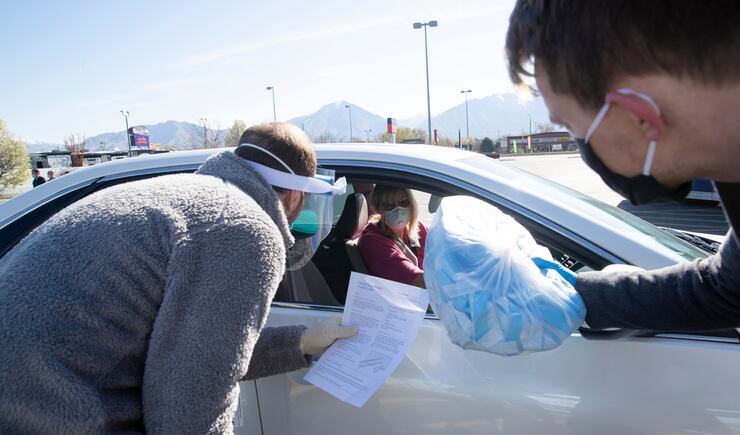
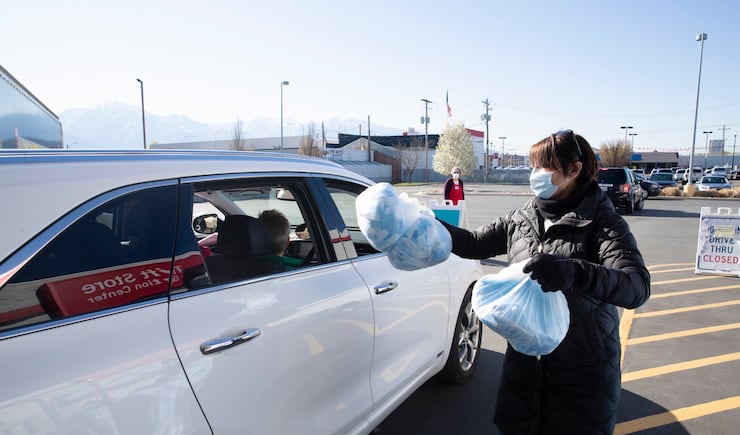
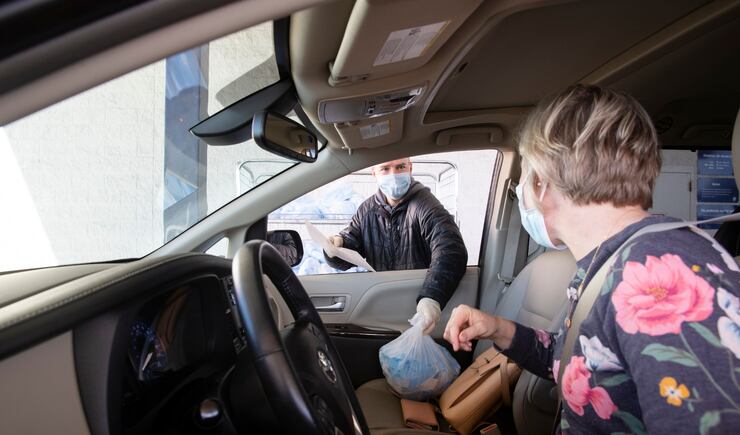
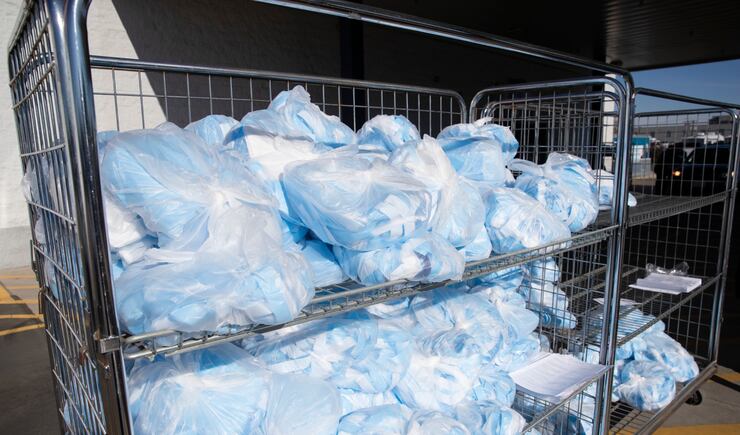
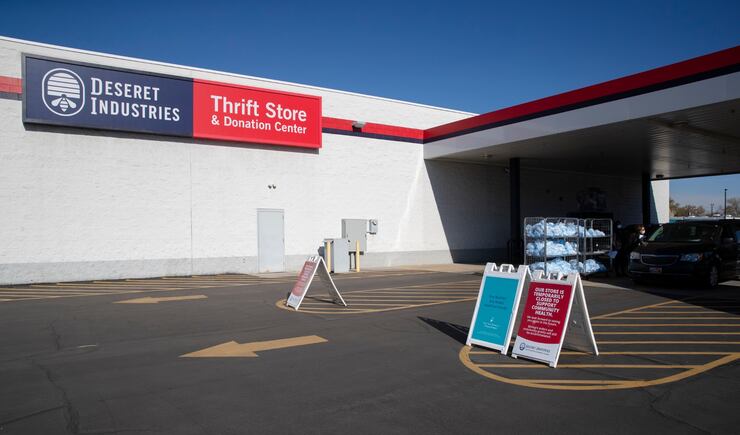
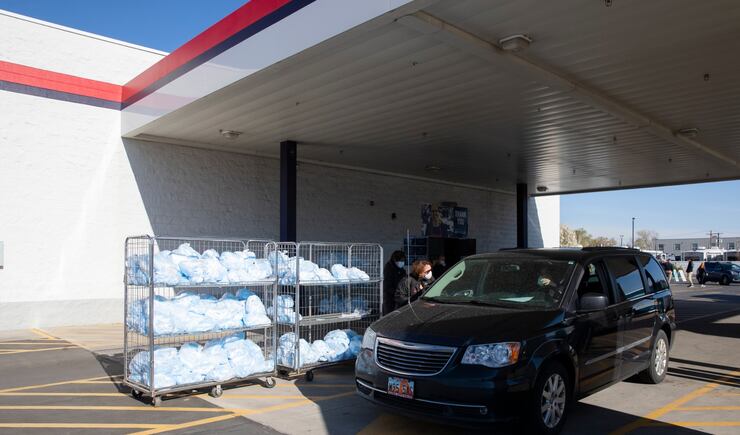
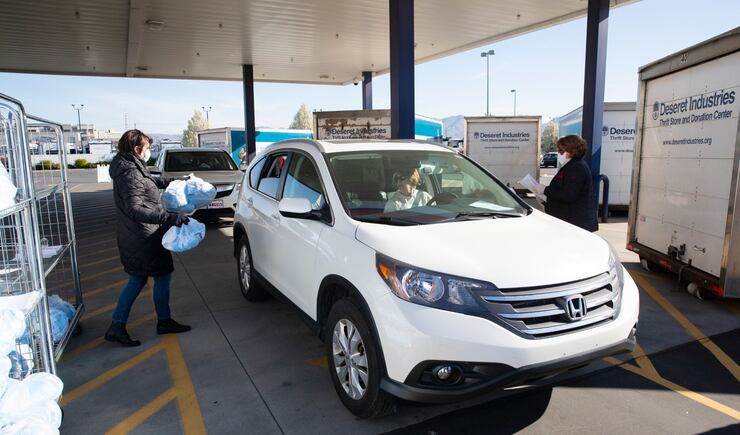
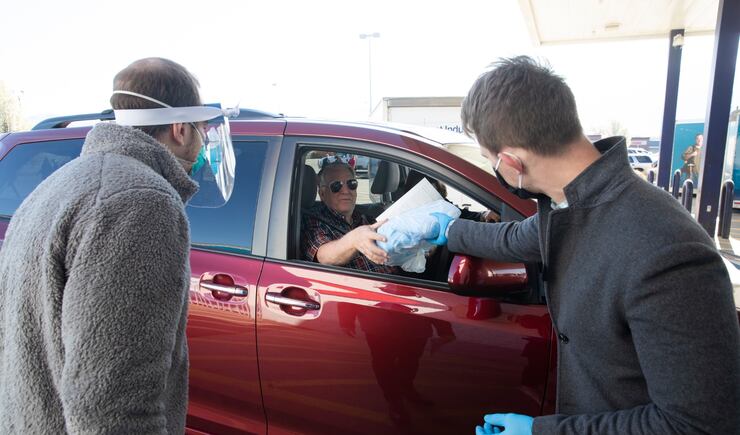
Instead of religious clothing, Beehive Clothing facilities in Brazil, Mexico, Paraguay, the Philippines and Utah now are manufacturing face shields and masks. Those in Utah will begin manufacturing medical-grade gowns next week, Liljenquist said.
Similar manufacturing conversions are taking place all over the country, as plants change from making paint to hand sanitizer and from shoes to masks, according to the Wall Street Journal, which called the private-sector initiatives “an underappreciated asset in Americans’ fight against the coronavirus” and called it an echo of the “Arsenal of Democracy,” the industrial mobilization that helped win World War II.
The design for the gowns was completed Thursday, Liljenquist said. The goal is to produce 30,000 to 35,000 gowns per week once the material arrives in Utah.
Those who want to join the project can visit projectprotect.health/# and click on “Volunteer & Get Kit” in the upper right-hand corner. Once registered, a volunteer must print out a card that she or he will put in the dashboard of their vehicle. Kits will be distributed on Tuesdays for the next five weeks through the drive-thru areas of Deseret Industries facilities and other locations, Sister Eubank said. Volunteers with a registration card need only pop their trunk to receive their kits at the sites.
The Deseret Industries sites are in American Fork, Harrisville, Layton, Murray and Riverton. The project hopes to be able to expand beyond the Wasatch Front, Liljenquist said.
Each kit will allow a volunteer to make 100 masks. Volunteers will return the completed masks to the same location on Saturdays.
“Four weeks ago, I got a call from a University of Utah doctor asking if we might consider sewing medical masks to address a looming shortage in the hospitals,” Sister Eubank said in a prepared statement. “From that initial call, an important partnership was born. This team, from multiple organizations and a variety of professions, has moved mountains to make ProjectProtect possible. If such a feat is possible anywhere in the world, it’s here in Utah. We’re so happy to be a part of this community effort!”
The collaboration began with a meeting on March 29, Liljenquist said.
Project partners have held daily meetings about supply chain, operations, instructional design and communications, but they project is ready to begin now that the polypropylene fabric for the medical-grade masks cleared customs in Los Angeles after arriving from China, according to a press release.
The project will require about 750,000 volunteer hours, Sister Bingham said.
“It has been made very easy,” she added during Friday’s news conference on Utah’s pandemic response with Gov. Gary Herbert and other leaders. “Only straight-line sewing is needed. There are printed instructions, a how-to video and a Facebook support group ready to answer any questions.”
Volunteers need to be able to:
- Follow detailed instructions and use a sewing machine.
- Access a sewing machine, thread, scissors and pins. Material and instructions will be provided.
- Make 100 masks. Depending on the sewer’s level of experience, each mask will take five to 10 minutes to sew.
- Spend 10 to 15 hours sewing, plus they’ll need to pick up the materials and drop off the finished masks.
“Utah is successfully addressing COVID-19 with strong social distancing, personal protective equipment for medical professionals and the use of cloth masks by the general public when away from home to help each other keep safe,” Sister Bingham said.
Any masks not needed here will be donated to other hospital systems around the country. where needed around the country, she added.
Professional golfer and Utah native Tony Finau and the Tony Finau Foundation are supporting the project. So is doTERRA and the Healing Hands Foundation and its founding director, Greg Cook, who made financial contributions to help acquire materials.
Other partners include Festival of Trees Volunteers, Volunteer Quilters, Stitching Hearts Worldwide, the Intermountain Foundation and the University Hospital Foundation.
The church is providing partners from Beehive Clothing, Deseret Industries, Deseret Transportation, Just Serve, the Relief Society and the Utah Area Presidency.
The church already has spearheaded projects to produce cloth masks for home and community use. Many of those have been donated to health care workers for use away from work to help keep them healthy and protect those who come in contact with them.
Sister Bingham shared a historical note, too. She mentioned that Relief Society doctors and midwives helped establish some of the first health institutions in Utah. In fact, the church gave its 15 hospitals to Intermountain Healthcare in 1975. Intermountain committed to operate them as a nonprofit entity. It now has 24 hospitals, 215 clinics, a medical group of 2,600 employed physicians and advanced-practice clinicians.
University of Utah Health operates 12 community clinics and four hospitals and has more than 20,000 employees.
Latter-day Saint Charities sponsors relief and development projects in 195 countries and territories.











